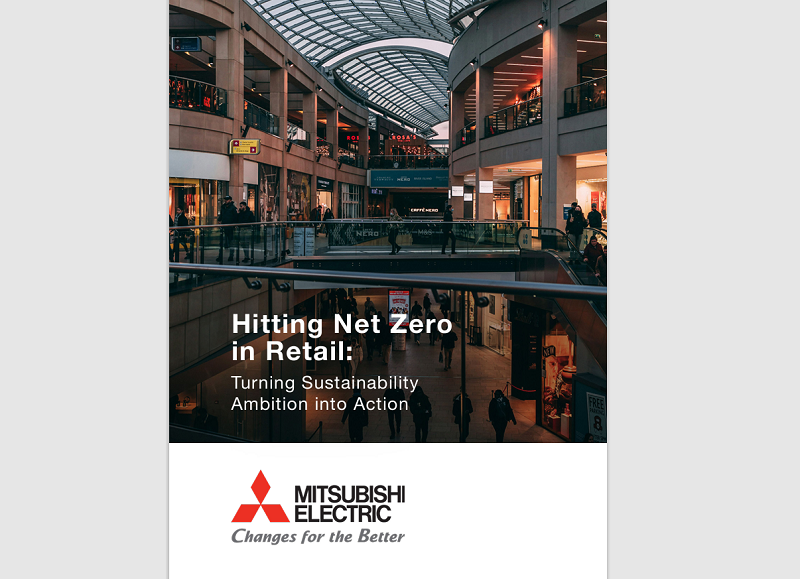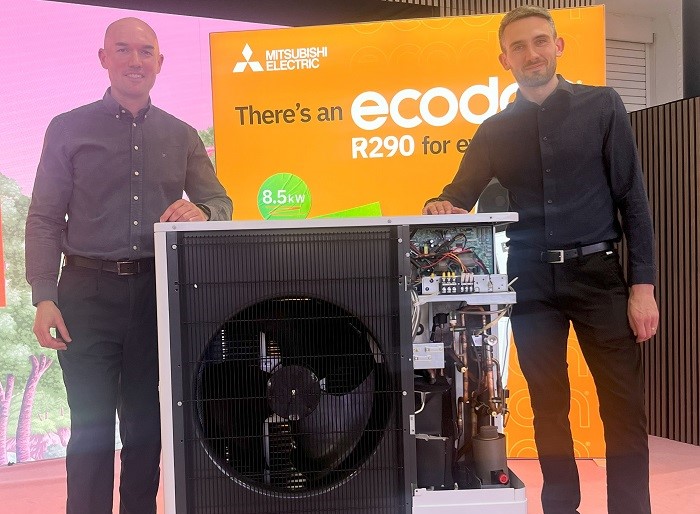UK retailers are losing over £146 million every year by failing to upgrade their buildings’ services to meet net zero targets, according to new research from Mitsubishi Electric.
The analysis finds that these losses come from aging equipment that leaks energy and costs far more to run than it should.
Despite eight in ten retail operations managers knowing that sustainability can boost financial performance, almost half (43%) believe net zero is not seen as a priority for their business because the return on investment (ROI) falls in future trading years.
The survey of 500 retail facilities managers across the UK also found:
- 35% realise that a third of their stores could become ‘stranded assets’ – too costly or impossible to rent due to poor environmental performance.
- Heating, ventilation or air conditioning (HVAC) systems account for up to 60% of a store’s energy use with 54% of facilities managers saying they have already upgraded to modern, energy-efficient systems.
- Yet the research shows that more than 34% of shops will remain uncompliant and unable to be updated by 2030 net zero targets.

Forward-thinking retailers are adopting a phased approach towards net zero upgrades, which helps to spread upfront equipment costs by tying it to lease events or planned refurbishment. However, the research also finds that many of those responsible for running these estates have little influence over sustainability and this is affecting their ability to act.
Over a third have no control over budgets or decision making for net zero and 42% report that they have had no direction from their seniors, while 21% do not even have net zero as part of their performance targets.
This lack of authority is stalling upgrades to one of the UK’s most energy-intensive industries. While facilities managers recognise that decarbonising estates can boost financial results, strengthen business resilience and improve the shopping experience, many just aren’t being empowered to act.
Chris Newman, Zero Carbon Design Manager, Mitsubishi Electric Living Environment Systems UK, said: “The retail industry has the third largest building footprint in the UK, with around 16% of all non-domestic building space occupied by shops. This offers a substantial opportunity to decarbonise at scale, starting with identifying the ‘easy wins’ now and reviewing the systems responsible for heating, ventilating and cooling these spaces. In having an in-depth understanding of how this equipment operates, facilities managers are uniquely positioned to support the delivery of net zero estates in future.”
With regulations such as the Minimum Energy Efficiency Standards (MEES) expected to tighten over the next five years, and investor expectations on sustainability continuing to rise, retailers that don’t adapt their buildings also risk them becoming unlettable, losing asset value, and ceasing operation further down the line.
Already, 35% of operations managers estimate more than a third of their estate could become stranded assets – meaning they are no longer economically viable due to their environmental performance – if these regulations are implemented. This is already having financial consequences, with retailers losing an estimated £146 million through energy leakage per year from ageing equipment that should be replaced with modern, energy-efficient systems.
Chris Newman, said: “The longer we leave it, the harder adapting these buildings is going to get. Now is the time for retailers to be creating long-term strategies that align ‘business as usual’ with concrete commitments for energy reduction. This will not only support compliance with existing and proposed regulations like MEES but also protect asset value and lower costs at a time when the majority can ill-afford further financial strain. This will allow retailers to stay competitive and fully operational within an increasingly sustainably minded market.”
HVAC systems are often responsible for up to 60% of a retail building’s total energy consumption, so they have a crucial role to play in decarbonising them.
Replacing equipment with energy-efficient alternatives – such as modern air conditioning and heat pumps – can be as straightforward as replacing indoor and outdoor units while keeping the existing pipework. This can lead to significant energy and cost savings, compliance with incoming regulation, and ensure that the retail industry is prepared for the net zero economy.
Mitsubishi Electric and Opinion Matters conducted a survey of 500 UK-based facilities managers in the retail sector between 3rd – 8th April 2025.











